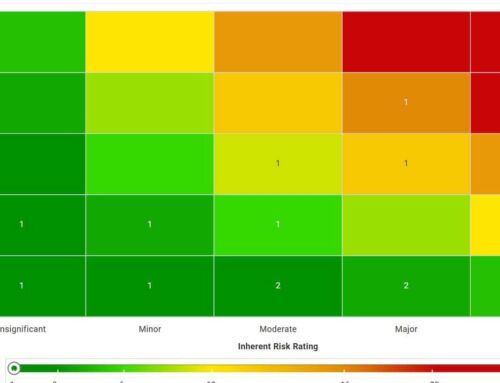Odette Will Never Happen: A reflection on preparedness planning
Swan Lake is my absolute favorite ballet. I’ve actually danced the part of the “Four Swans,” and most in ballet will say that’s the hardest two minutes of dancing they’ve ever done. I think it’s permanently ingrained into my soul, and I begin dancing anytime the song comes on. The music is Tchaikovsky, the costumes are to die for, and the tragic love story is—in my humble opinion—better than Romeo & Juliet. The glamor that the evil sorcerer, Rothbart, places on his daughter, Odile (a.k.a., the black swan), gives Siegfried a false sense of security that he is dancing with his love Odette. It gets me every time.
In fact, my mom and I went to the ballet for my birthday in February 2020. Ah, February 2020 …immediate feelings of pre-COVID pandemic arise.
Where are your black swans?
Pandemic planning isn’t new. In December 2006, the Pandemic and All-Hazards Preparedness Act (PAHPA) was signed into law by George W. Bush (P.L. 109-417). This bipartisan bill amended the Public Health Service Act and aimed at improving the nation’s preparedness response, including the response to pandemics. The driver for the 2006 law was influenza and counter-terrorism. However, support for the bill has continued through three additional presidential administrations with reauthorizations in 2013 (P.L. 113-5), 2019 (P.L. 116-22) and a temporary reauthorization through December 31, 2024 (P.L. 118-42). Fun note: I remember participating in my first pandemic response scenario around 2009/2010. Thanks to a roll of the dice, I survived.
So why was our response to COVID-19 lackluster? I blame Odile. Well, I attribute it to the idea of black swan events.
Black swan events are those that are difficult to predict but would have significant consequences should they happen. These types of events could be either positive—winning the lottery—or negative. However, from my experience in business continuity and disaster recovery planning, I’ve seen this term used for, “Oh, that will never happen. That’s a black swan.” Testing scenarios get reframed to only test for the easy, more day-to-day operations. When complicated situations are proposed, too many times we pull out the “black swan” label, avoiding the idea altogether to go back to what we know.
The Preparedness Challenge
We now have hindsight on our side with our COVID-19 experience. I want to rouse those involved with planning this National Preparedness Month to challenge their “Odette that will never happen”…I mean, “Oh, that will never happen” responses. It is as simple as asking, “Why do you feel this would never happen?” Listen to the response and dig deeper where needed. Reaffirm that no one is in trouble if we find we don’t have a response. This is why we test: to practice, to realign resources, and to protect our organization and people. You’ve got to respond to Odile to keep your Odette safe.
Need some help in thinking through how to review your program? I’ve referred back to the Federal Financial Institutions Examination Council (FFIEC) guidance many times in my career, even when working outside of the financial industry. As a side note, the FFIEC put out pandemic guidance as early as 2007 with a bulletin issued by the Office of the Comptroller of the Currency (OCC) (OCC Bulletin 2007-49 Issued December 18, 2007).
Why do I turn to the FFIEC as a trusted resource? Well, the first answer is the cheapest. They are free and available to the public. However, and most importantly, each topic has a booklet explaining what the auditor is looking for (a.k.a., what’s important to focus on in these programs) and an audit work program that outlines considerations for how to audit the topic. This guidance and coordinating work programs focus on asking questions to gather the most relevant information for your organization, making them flexible and usable across industries. Guidance from these organizations has served me well as a baseline that is easily adaptable, no matter where I work. They can serve you in your current situation, too.
Additional resources
FFIEC IT Workprograms can be found here: https://ithandbook.ffiec.gov/
The 2020 FFIEC “Interagency Statement on Pandemic Planning” can be found here: https://www.occ.gov/news-issuances/bulletins/2020/bulletin-2020-13a.pdf
About the author






